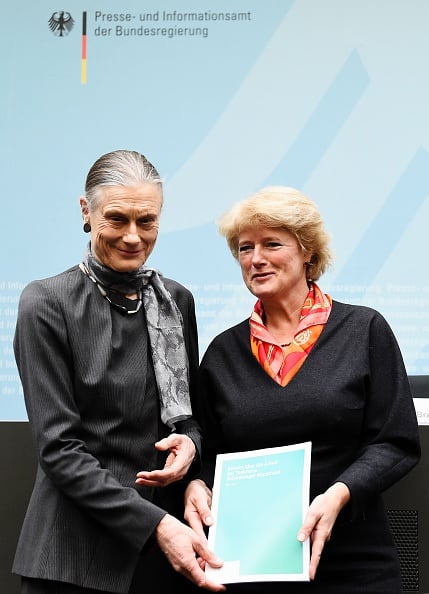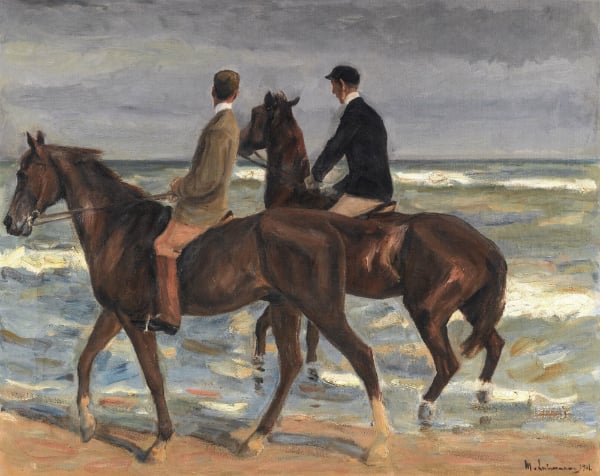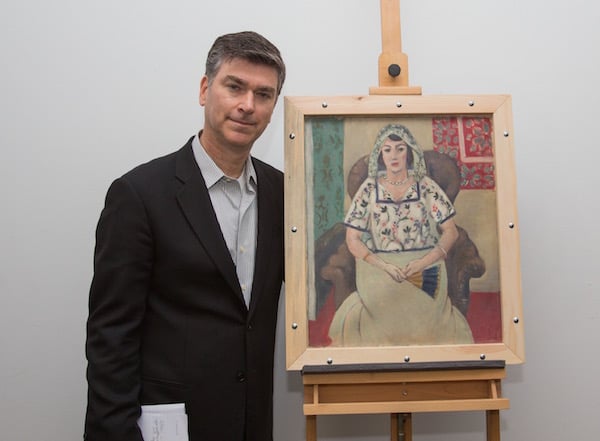Law & Politics
Germany Rushes to Defend Gurlitt Taskforce Amid Harsh International Criticism
The taskforce has been accused of opacity and inefficiency.

The taskforce has been accused of opacity and inefficiency.

Henri Neuendorf

A taskforce set up by the German government in 2012 to investigate the provenance of over 1,500 suspected Nazi-looted artworks from the Gurlitt trove presented their final report in Berlin on Thursday.
The trove—which included works by Matisse and Picasso—belonged to Cornelius Gurlitt, whose father Hildebrandt Gurlitt sold “degenerate” artworks on behalf of the Nazis.
According to Die Welt, head of the taskforce, Ingeborg Berggreen-Merkel, defended the drawn-out process which has been internationally criticized for its slow progress, lack of transparency, and high cost.

Detail from Henri Matisse’s Seated Woman/Woman Sitting in Armchair (1921).
Photo: Lost Art Koordinierungsstelle
After two years of research costing €1.8 million ($2.5 million) of public money, Berggreen-Merkel announced that the 14-member taskforce identified the provenance of only 11 artworks. Five were identified as Nazi-looted art. Four have been restituted, including Max Liebermann’s Two Riders on a Beach(1901), and Henri Matisse’s Woman with a Fan (1923).
“In my view we have achieved a lot,” Berggreen-Merkel insisted. She explained that “the taskforce had to accept the source material as it is.” She pointed out that Gurlitt’s collection was hoarded rather than adequately stored. There was “no inventory, no order, no documentation.”
Berggreen-Merkel added that the commission was repeatedly impeded by data protection laws. She explained that the prosecutor in charge of the confiscation in Augsburg forbade the publication of most documents to protect privacy rights.

Max Liebermann Two riders on the beach to the left
Photo: Sotheby’s
Only after the death of Cornelius Gurlitt on May 6, 2014 could the taskforce start working with his private documents. The Kunstmuseum Bern, to whom Gurlitt bequeathed his controversial collection also signaled their cooperation.
However, when Gurlitt’s relatives contested his will, the publication of private information was prohibited once again.
Despite disbanding the commission at the end of 2015, German culture minister Monika Grütters defended the commission’s work. “The results are significantly better than the figures suggest,” she said.

President of the World Jewish Congress, Ronald Lauder, in September 2014
Photo: Michael Thaidigsmann via Wikimedia Commons
But the results have drawn strong criticism. The Guardian reports that Ronald Lauder, president of the World Jewish Congress, called the findings “meagre and not satisfactory.” He said he “expected Germany to do better, given that time is running out,” and accused the taskforce of inefficiency and mismanagement.
The sentiment was echoed by Christopher Marinello of the Art Recovery Group, which successfully secured the restitution of Matisse’s Woman with a Fan (1923) on behalf of the heirs of the Jewish art dealer Paul Rosenberg.

Rosenberg family Christopher Marinello posing with the restituted painting
Photo: The Art Recovery Group
“It has been clear since the beginning that the Task Force, which is made up of some immensely talented individuals, was fatally underfunded and understaffed,” Marinello wrote in in email to artnet News.
“We know provenance research cannot be rushed, but for projects as important as the Gurlitt hoard we would have expected to see much greater support, funding and resources to aid in its efficiency.”
He concluded, “The German government dropped the ball on this one and have missed a golden opportunity to show real leadership around provenance research and restitution issues.”